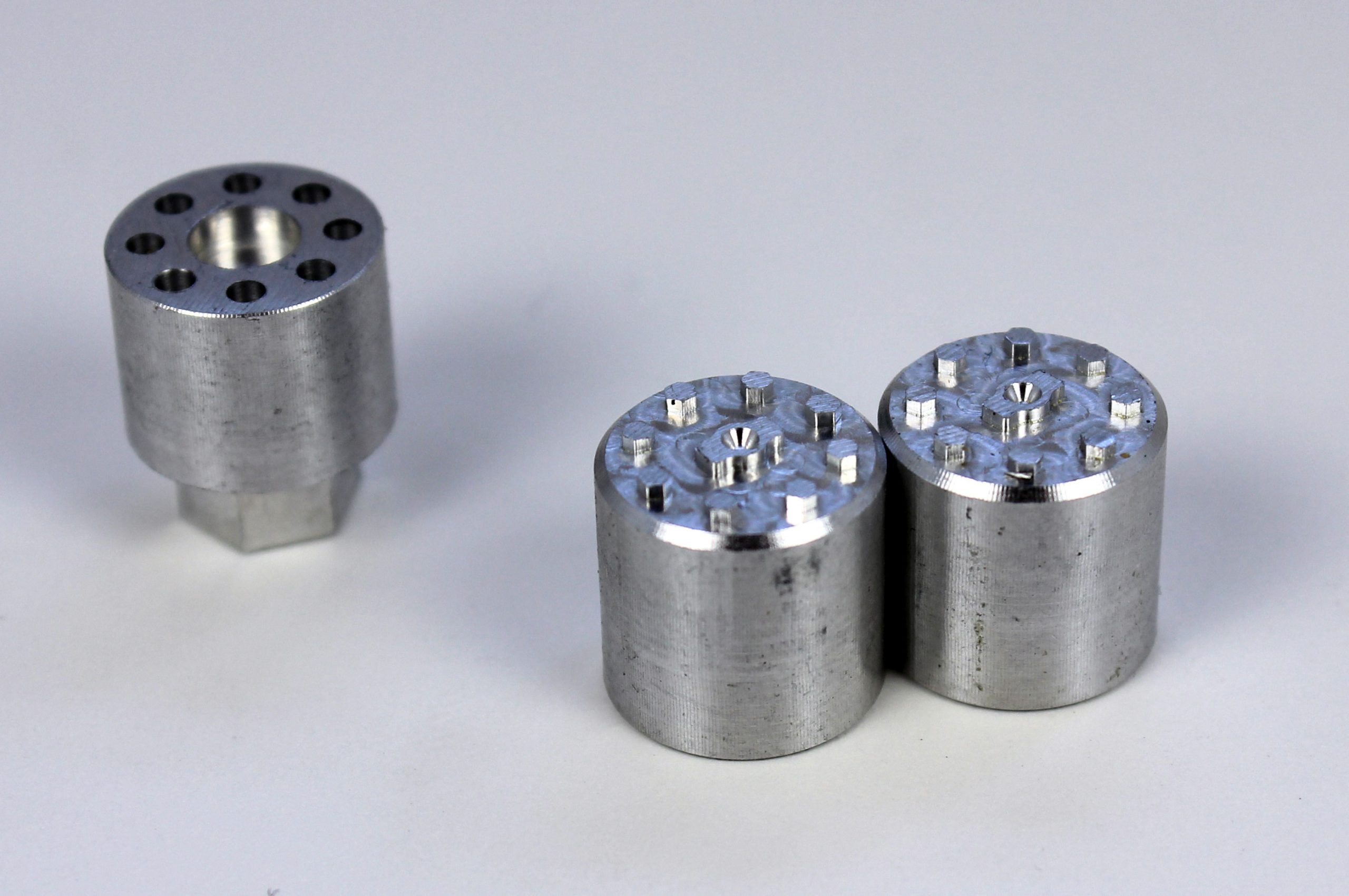When it comes to tech innovation, HD hubs have taken center stage in transforming how we connect devices and enhance our digital experience. These powerful gadgets are more than just adapters—they're game-changers in the world of multimedia and productivity. From streaming high-definition content to expanding your device’s capabilities, HD hubs are here to stay, and they’re redefining convenience in the tech landscape.
Imagine this: you're sitting in a conference room, trying to connect your laptop to a massive screen for an important presentation. Panic sets in when you realize your laptop doesn't have the right port. Enter the HD hub—a lifesaver that bridges the gap between outdated tech and modern devices. It's not just about solving compatibility issues; it's about elevating your workflow and entertainment experience.
But what exactly is an HD hub? Why should you care? And how do you choose the right one for your needs? Stick around, because we’re diving deep into the world of HD hubs, breaking down everything you need to know. Whether you're a tech enthusiast or someone who just wants to make life easier, this guide has got you covered. Let's get started, shall we?
Read also:Kaitlan Collins Husband The Inside Story You Need To Know
What Are HD Hubs and Why Do They Matter?
HD hubs are essentially multi-port adapters designed to connect multiple devices to a single interface. They allow users to expand the functionality of their laptops, smartphones, or tablets by adding extra ports for HDMI, USB, Ethernet, and more. In today's world, where devices are getting slimmer and sleeker, these hubs fill the void left by the removal of essential ports. Think of them as the ultimate multitasking tool for both work and play.
Here’s the deal: most modern laptops, especially ultrabooks, come with limited ports. While they’re great for portability, they often lack the versatility needed for heavy-duty tasks. This is where HD hubs shine. By providing multiple connection options, they ensure you can stream 4K videos, transfer files at lightning speed, and even charge your devices—all at the same time.
Key Features of HD Hubs
Not all HD hubs are created equal. Here are some of the standout features you should look for:
- HDMI Output: For connecting to monitors, TVs, or projectors for high-definition display.
- USB Ports: For external drives, keyboards, mice, and other peripherals.
- Ethernet Port: For stable and fast internet connections, especially useful in professional settings.
- SD Card Reader: For transferring photos and videos from cameras or other storage devices.
- Power Delivery: Some hubs come with built-in charging capabilities, ensuring your devices stay powered up.
These features make HD hubs indispensable for anyone looking to maximize their device’s potential. Whether you're a creative professional editing videos or a gamer streaming live content, an HD hub can take your experience to the next level.
The Evolution of HD Hubs
HD hubs have come a long way since their inception. What started as simple adapters has evolved into sophisticated devices capable of handling complex tasks. The demand for higher resolution displays, faster data transfer, and seamless connectivity has driven manufacturers to innovate and improve these gadgets continuously.
In the early days, HDMI adapters were the go-to solution for connecting laptops to external displays. However, as technology advanced, the need for more versatile solutions became apparent. This led to the development of multi-port hubs that not only supported HDMI but also included USB-C, Thunderbolt, and other cutting-edge technologies.
Read also:How Many Bodies Does King Von Have Unveiling The Truth Behind The King
Trends Shaping the Future of HD Hubs
Here are some trends that are influencing the future of HD hubs:
- 8K Support: As 8K displays become more mainstream, HD hubs will need to keep up with the demand for ultra-high-definition content.
- Wireless Connectivity: While wired connections remain king for stability, wireless hubs are gaining traction for added convenience.
- AI Integration: Some manufacturers are exploring AI-driven features to enhance user experience, such as automatic device detection and optimization.
These trends suggest that HD hubs will continue to evolve, offering even more functionality and convenience in the years to come.
Selecting the Right HD Hub for Your Needs
With so many options available, choosing the right HD hub can feel overwhelming. To help you make an informed decision, here are some factors to consider:
First off, think about your primary use case. Are you using the hub for work, gaming, or entertainment? Each scenario may require different features. For instance, if you're a graphic designer, you'll want a hub with high-speed data transfer capabilities to handle large files efficiently.
Factors to Consider When Buying an HD Hub
- Compatibility: Ensure the hub is compatible with your devices and operating system.
- Port Selection: Choose a hub that offers the ports you need most frequently.
- Build Quality: A well-built hub will last longer and perform better under heavy use.
- Price: While premium hubs offer advanced features, there are plenty of affordable options that still deliver great performance.
By keeping these factors in mind, you can find an HD hub that perfectly matches your requirements.
Top Brands in the HD Hub Market
Several brands have established themselves as leaders in the HD hub industry. Here’s a quick rundown of some of the top players:
1. Anker: Known for their reliable and durable products, Anker offers a range of HD hubs that cater to both casual users and professionals.
2. Belkin: With a focus on quality and performance, Belkin’s hubs are a favorite among tech enthusiasts.
3. HyperDrive: This brand specializes in sleek, high-performance hubs that are perfect for creative professionals.
When choosing a brand, it’s essential to read reviews and compare specifications to ensure you’re getting the best value for your money.
How HD Hubs Enhance Productivity
For professionals, HD hubs are more than just accessories—they’re productivity boosters. Imagine being able to connect multiple monitors to your laptop, streamlining your workflow and increasing efficiency. Or having instant access to external storage for backing up important files. These are just a few examples of how HD hubs can transform your work environment.
Use Cases in the Workplace
- Presentations: Connect your laptop to a projector or large screen for engaging presentations.
- Data Management: Transfer files quickly and securely using USB ports.
- Networking: Ensure a stable internet connection with an Ethernet port, crucial for remote work.
By integrating HD hubs into your daily routine, you can streamline tasks and focus on what truly matters.
The Role of HD Hubs in Entertainment
When it comes to entertainment, HD hubs are a game-changer. Whether you're streaming movies, playing video games, or editing footage, these devices ensure you get the best possible experience. High-definition content demands high-performance hardware, and HD hubs deliver exactly that.
Streaming and Gaming with HD Hubs
- 4K Streaming: Enjoy ultra-clear visuals on your favorite streaming platforms.
- Gaming: Connect your gaming console or PC to a large screen for immersive gameplay.
- Editing: Transfer and edit high-resolution videos with ease, thanks to fast data transfer speeds.
With an HD hub, your entertainment setup becomes more versatile and enjoyable.
Tips for Maintaining Your HD Hub
To ensure your HD hub lasts as long as possible, here are some maintenance tips:
- Keep It Clean: Regularly dust and clean the ports to prevent dirt buildup.
- Avoid Overheating: Don’t overload the hub with too many devices simultaneously.
- Store Properly: Keep the hub in a safe place when not in use to avoid damage.
By following these simple steps, you can extend the lifespan of your HD hub and continue enjoying its benefits.
Common Misconceptions About HD Hubs
There are a few misconceptions surrounding HD hubs that need clarification. For instance, some people believe that all hubs are created equal, which couldn’t be further from the truth. Others think that cheaper hubs will perform just as well as premium ones, but this often isn’t the case. Investing in a quality hub can save you time and frustration in the long run.
Debunking Myths
- Myth: HD hubs are only for tech-savvy users. Fact: They’re designed to be user-friendly, even for beginners.
- Myth: All hubs support 4K resolution. Fact: Not all hubs are capable of handling 4K content; check the specs before purchasing.
Understanding these myths can help you make better-informed decisions when buying an HD hub.
Conclusion
In conclusion, HD hubs are more than just accessories—they’re essential tools for enhancing both productivity and entertainment. From connecting multiple devices to streaming high-definition content, these gadgets offer unmatched versatility and convenience. By choosing the right hub for your needs and maintaining it properly, you can enjoy years of reliable performance.
So, what are you waiting for? Dive into the world of HD hubs and experience the difference they can make in your digital life. Share your thoughts in the comments below, and don’t forget to check out our other articles for more tech insights. Stay connected, stay informed, and let’s keep the conversation going!
Table of Contents
What Are HD Hubs and Why Do They Matter?
Trends Shaping the Future of HD Hubs
Selecting the Right HD Hub for Your Needs
Factors to Consider When Buying an HD Hub
Top Brands in the HD Hub Market
How HD Hubs Enhance Productivity
The Role of HD Hubs in Entertainment
Tips for Maintaining Your HD Hub
Common Misconceptions About HD Hubs



